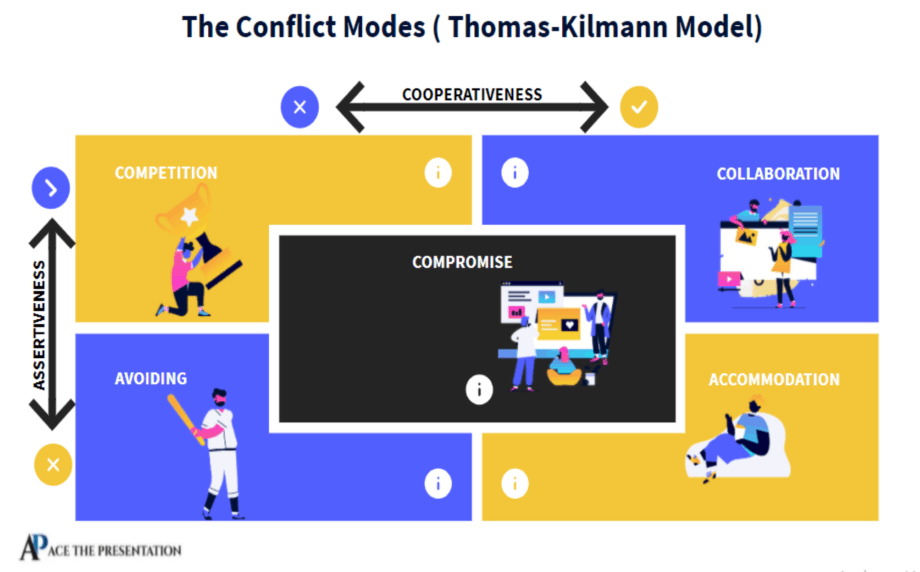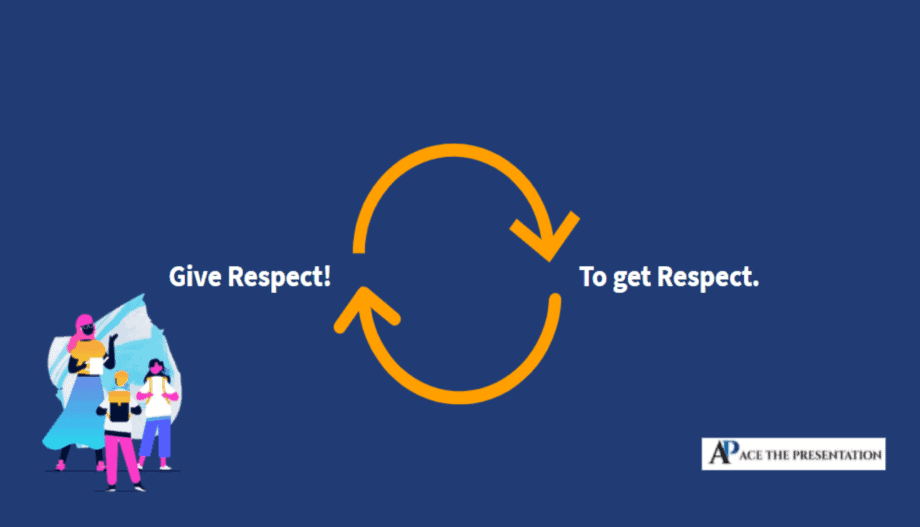Top 15 Social and Interpersonal Skills at Work
Our work performance and recognition depend not only on how good and experienced we are at doing our jobs, but also on how we behave and establish a relationship with our colleagues and commit to the organization that hired us.
We will be touching upon the top 15 social and interpersonal skills at work, in order to help you realize some of the skills that you can still learn and develop for a much successful career.
Interpersonal skills are often called Social skills, or people skills, all to say that it has to do with your ability to communicate and interact with others. At work, it means you are a great team player, leader, that you provide insightful feedback, empathizes and support others, and so on.
Here is a list of the Top 15 Social and Interpersonal Skills at Work for our best known:
- Active listening
- Adaptability
- Attitude
- Collaboration
- Conflict Management
- Cooperation
- Effective communication
- Emotional Intelligence
- Empathy
- Knowledge-Sharing
- Motivation
- Openness to feedback
- Respect
- Responsibility
- Work Ethic
Interpersonal skills are what we call workplace social skills; Social skills are built in our relationships with family, friends, and with people in general.
We can tell if we have good or bad interpersonal skills, like being afraid of speaking in public for example. Worry not, interpersonal skills can be developed and we can get better if we want to.
Interesting Articles to Check out Next:
7 Indicators of Good and Bad Social Skills
Interpersonal Skills vs. Interpersonal Skills
Top 15 Social and Interpersonal Skills at Work
1. Active Listening

Listening is a key part of communication. If we are bad listeners, we cannot become good leaders because we don’t know what is happening around us, we don’t understand how people work there, the struggles and day-to-day problems.
We can become active listeners, if we:
- Listen to understand what people have to say and not to respond;
- Listen to learn from what is being said;
- Feed our curiosity beast.
To listen is also a pedagogical form to learn from an individual or group experience and a big sign of respect, allowing us to take lessons from the content is being given to us and the person is sharing.
Related Article: Listening: Our Most Used Communications Skill
2. Adaptability
Adaptability comes from willingness and resilience; it is the ability to adjust towards changes in our work environment and still be committed to the goals and deadlines that have been set.
One great way to develop adaptability is going out of the box. If we don’t know how to accomplish a task that our boss gave to us, we find someone who knows how to do it, and we learn from them.
We can look for articles that can teach us, YouTube videos, colleagues, or even experts.
This skill requires that we be in sync with working techniques or contents that are trending and innovative, and we have to be quick in the uptake to become more effective professionals.
We can improve our adaptability skills in the workplace by:
- Setting goals for the projects we make;
- Sharing with team workers, so we know what they think;
- Request opportunities to work on tasks that may be new;
- Take on responsibilities that require creative approaches.
3. Attitude
Attitude at the workplace is how we behave and feel towards the environment, position, or tasks we are doing, or need to do, and whether we embrace them positively or not.
Sometimes we will get in situations such as the backlog of work, conflict with colleagues and if we don’t know how to behave in such cases and have a higher purpose at work besides getting paid, we might end up showcasing a bad attitude.
Personality and values play essential roles in how we feel about our jobs. If we are impatient and our current position at work does not match what we wanted to be doing right now, we can get stressed out.
Our attitude towards our job is essential. We may not be in a position we would like to be in the moment but remember that each person who works there makes a difference and brings different baggage.
We can have the right attitude at work by:
- Being grateful for having a job and the opportunity to work with different people;
- Being respectful with everyone that works or interact with us;
- Feeling positive about our responsibilities or at least trying to look at the bright side of things often.
Having the right attitude increases the chances of being promoted, noticed, and helps us do our job better. Expanding an excellent vibe to our co-workers is also essential to increase productivity and collaboration between us.
4. Collaboration or Team Work
Collaboration is a situation where two people or more work together to achieve the same results or objectives; they can be colleagues or not from the same or distinct departments, but the task they are accomplishing leads them to the same goal.
Collaboration is directly related to teamwork activities. We need to play this game as football players, who despite having amazing individual skills, they still need to pass the ball around to score. At work is no different!
We can collaborate at the workplace by:
- Establishing team goals;
- Socializing with our colleagues to know more about hidden skills they may have;
- Sharing expectations and hearing what they have to say;
- Hanging out with people with the same purposes as ours.
5. Conflict Management
Conflict Management is a process where problems are visualized as an opportunity to grow, minimalizing the process’s stress, and bringing positives outcomes.
Thomas and Kilmann developed a conflict model that understands conflict as a situation where people’s concerns are incomparable. They came out with five conflict resolution strategies to conflict:
- Avoiding
- Accommodation
- Compromise
- Collaboration
- Competition
These are all strategies we commonly use facing day-to-day problems, but not all are the best choices when facing problems. We want to show we can handle conflict, and for that, we need to be ready to accept the situation as something we can take a lesson from.

We can improve our skills in conflict management at work by:
- Becoming active listeners, remember that we want to show our public that we understand the problem, and for that, we need to listen carefully;
- Not avoiding the problem, if we do this, we are only postponing the problem and taking the risk of making it bigger;
- Not choosing the competition as a strategy too because it is motivated by assumption and might not get the total display of the problem, focusing on one goal which is winning;
- Not choosing our comfort zone. Being accommodating can pass the impression that we might not care about what is happening;
6. Cooperation
Cooperation is the ability to help someone accomplish a target or task by sharing experience and point of view without receiving benefit for it.
We can see cooperation as an opportunity to grow. Even though we can do it and not get paid for it, we can still learn more about the content this person we are cooperating with is working, something new for us to improve our knowledge and experience.
Difference between Collaboration and Cooperation
- A collaboration is when we work in a group towards a common target or mission for which both parties are going to benefit and held accountable for. In collaboration, there is a shared vision of the work is being done;
- While in Cooperation, we support and help another colleague’s goals, but we don’t get the reward or responsible for anything.
We can develop cooperating skills at work by:
- Accepting new challenges;
- Hanging out with people that work in different areas than ours and face it as an opportunity to learn.
7. Effective Communication

Effective communication can give an oral speech that people can listen to and understand, transmit the right body language, and be more a listener than a speaker.
People can understand and quickly embrace our content when we are effective communicators because we are spending more of our time listening, so we know our co-workers’ needs.
In Effective Public Relations (1952), University of Wisconsin professor Scott M. Cutlip and Allen H. Center defined a set of principles, known today as the 7 C’s of communication.
- Completeness
- Conciseness
- Consideration
- Concreteness
- Courtesy
- Clearness
- Correctness
Related Article: The 7 characteristics of effective communication
8. Emotional Intelligence
Emotional Intelligence is the ability to feel, acknowledge, recognize, and transpire emotions and feelings consciously and reasonably.
When we have emotional intelligence, we empathize with others, but we also understand with them and their emotions and actions and behaviors towards them.
So having emotional intelligence at work can be defined by 4 attributes:
- Self-management
We can control impulsive feelings and behaviors such as stress and conflict pressure and adapt.
- Self-awareness
We can recognize when we feel stressed and pressured and because we know how we behave when we are like that, we stand firm.
- Social awareness
We feel empathy toward our colleague’s emotions, needs, and concerns because we listen with understanding.
- Relationship management
We communicate our feels and point of view, manage conflict, and develop healthy relationships.
9. Empathy
Empathy is the ability to be understanding and show kindness towards people’s feelings, needs, and forms of living. It is vital to have empathy with our co-workers at the workplace because an excellent worker can do a bad project.
Not because he does not have the skills that it takes, but because of the work environment or personal problems that may have caused problems to get bigger and affect day-to-day work.
Our colleague can be working directly with customer care service and affect the company image so that some empathy can make a fundamental difference here.
We can develop empathy at the workplace by;
- Understanding that we are all connected. The problem of one can be of all us;
- Looking at the problem of our co-worker as a tomorrow time saver.
Highly Recommended Article:
Interpersonal Skills: How to Develop Empathy
10. Knowledge Sharing
Knowledge-Sharing is a volunteering form of transmitting techniques, tips, or experiences in general from one person to another.
“Knowledge sharing is essential for a company to achieve success since it can facilitate decision-making capabilities, build learning organizations and finally, stimulate cultural change and innovation.” – Postolache.
We can develop knowledge-sharing at work by:
- Sharing with colleagues the know-how of things;
If your company has a database, be free to look for relevant documents, videos, or presentations.
11. Motivation
The term motivation is derived from the Latin word movere, meaning “to move.” Motivation is the reason we start an action to achieve goals, way of living, or pride.
Different specialists studied motivation, and there is not a Universal theory or reason why we get motivated. However, motivation can happen because of an intrinsical or outside motif.
For example, let’s listen to a playlist of music every time we get sad and try to overcome that situation and finish that project to deliver at work by Monday. That is outside or external motif.
As a friend, music is people dedicating their energy to help people.
We can find motivation at work by:
- Working on the job of our dream or at least on a project that we care about;
- Writing a journal, highlighting the days we feel happy and the reasons we can always read when forgetting about why we are where we at.
12. Openness to Feedback
Openness to feedback is commonly related to how we feel about team-work. Working without cooperation and collaboration can be useful, but we get a bigger perspective if we allow other people to read and say how they understood what we did.
Criticism can be an opportunity to grow and learn. We need to remember that the person is talking about our work; we don’t need to react emotionally.
We can develop an openness to feedback at work by:
- Learning about emotional intelligence;
- Taking mistakes as opportunities to do better;
Related Article: 6 Tips for Taking Criticism Gracefully
13. Respect
The word respect comes from the Latin word “respectus,” meaning attention, regard, or consideration. Respect is the ability to esteem, be polite, and most times admire people.
We can develop respect for two reasons:
- Because we admire someone for his excellence, battles, and behavior toward life, we develop respect.
- Because we recognize we don’t know that person, and even though his actions or way of life are the opposites of what we approve of, we don’t judge.

At work and everywhere else for that matter it is vital to respect people and what they do because we don’t know the inner fights, what they go through every day to be there doing their jobs.
14. Responsibility
Responsibility is the compromise we have with a goal and deadline that has been set. To have responsibility is a matter of honor and organization.
If we commit to deliver a project until next Monday, it has to be done unless we have unforeseen situations that have to be justified and we give a heads up to the person who was expecting for it to be delivered.
When we are responsible for a project or a duty, we are the ones to blame if it goes wrong or doesn’t get done; we need to be organized, set S.M.A.R.T. targets and methods to have better control of what we need to answer for.
15. Work Ethics
Work Ethic is not about sticking to terms of compromise and standards of the company we are working for, but it also takes into account your education. We cannot reach out to our colleagues at inappropriate hours, or talk to them about subjects that are too personal, etc.
Our image is significant here; we need to behave politely and treat all people with utmost respect and kindness.
The terms of compromise and the company’s standards are the things our employer needs us to follow and do, such as team-work, formal clothes, and schedule.
Conclusion
The ability to work together as a team is precious in every workplace. Interpersonal skills help us interact with others effectively, on the job and in the World;
Most people are born with such skills; however, anyone that wants to have them can develop them. Developing interpersonal or social skills will enable us to talk to and work with all types of people, including managers, co-workers, and customers.
Reference and Further Reading
15 benefits of Knowledge Sharing. Ellium
Effective Communication. HelpGuide.
How to stay calm under pressure – Noa Kageyama and Pen-Pen Chen
Improving Emotional Intelligence (EQ). HelpGuide.
Top 8 Interpersonal Skills For The Workplace. BigThinkEdge
https://www.acethepresentation.com/intrapersonal-skills-vs-interpersonal-skills/








